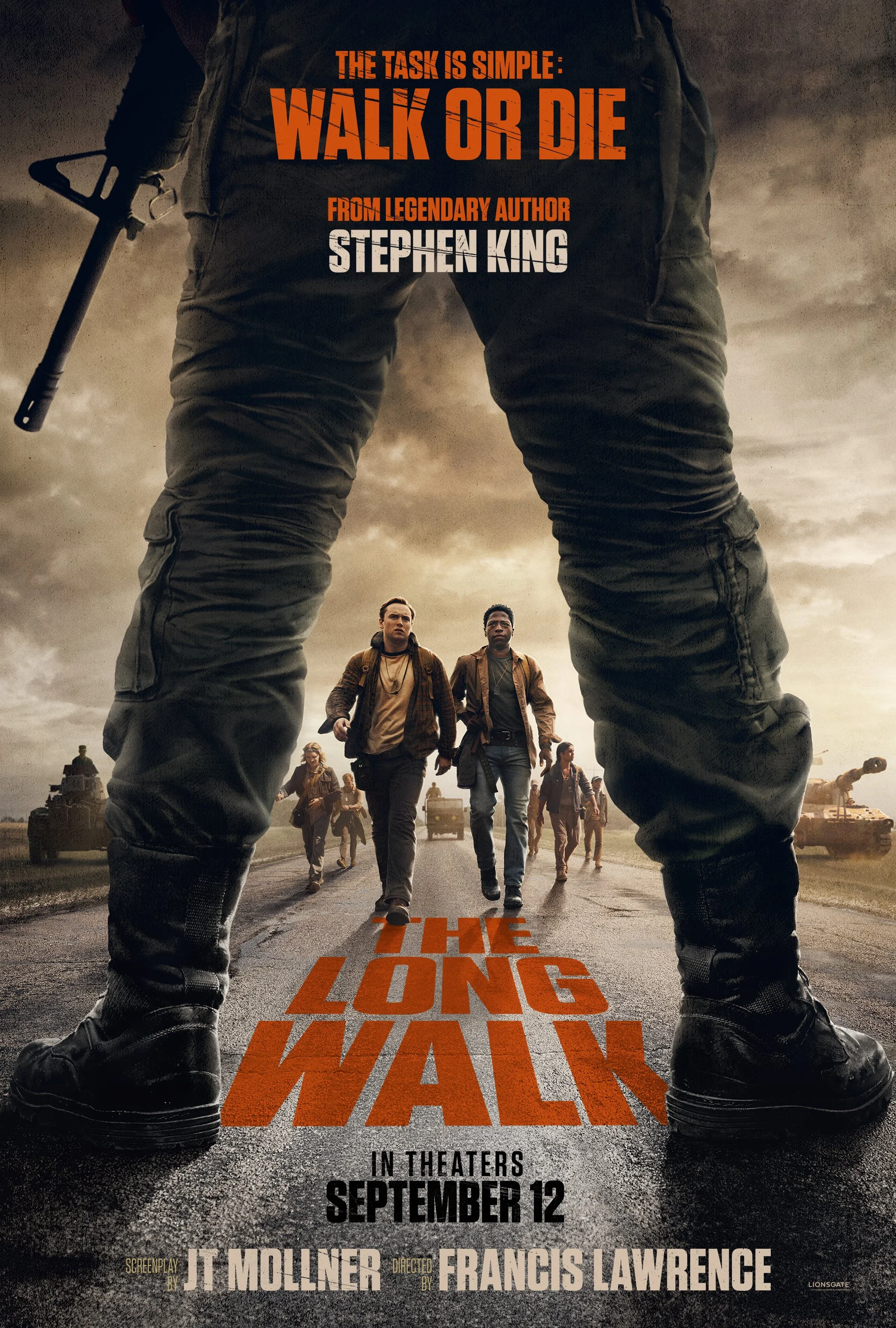The Long Walk Review: An Emotional Rollercoaster.
The Long Walk, released on September 12th, is a chilling adaptation of Stephen King’s very first written novel—penned back when he was still at the University of Maine in the late ‘60s. The story drops us into an alternate 20th century where a brutal civil war has left America under the iron grip of a totalitarian regime. To keep the masses entertained—and obedient—the government’s enigmatic leader, “The Major,” played by Mark Hamill, stages the ultimate survival contest: fifty teenage boys, one from each state, must walk nonstop until only one remains. The rules are terrifyingly simple: maintain a speed of at least three miles per hour or earn a warning. Three strikes, and you’re executed on the spot. Armed soldiers flank the road, the entire ordeal is televised, and the prize at the end is as seductive as it is sinister—a mountain of cash and one wish granted. Voluntary in theory, but in a country so stripped of hope, nearly every young man is desperate enough to sign up. What follows is a test of endurance, fear, and raw human willpower, where anticipation hangs heavy in every step and the shadow of death never leaves the road.
The first character we meet is Raymond “Ray” Garraty (Cooper Hoffman), a determined teenager whose mother drives him to the starting line in tears, begging him to back out. Ray’s reasons for joining the Walk aren’t immediately clear, but as the miles stretch on, the film gradually reveals motivations far deeper than ambition or greed.
Among the 50 boys competing, the story focuses on a handful of walkers—Peter McVries (David Jonsson), Billy Stebbins (Garrett Wareing), Arthur Baker (Tut Nyot), Hank Olson (Ben Wang), and Gary Barkovitch (Charlie Plummer). Not all of them are allies—some clash with the others, while a few form fragile bonds—but it is through these interactions that the film builds its emotional core. The Walk shifts from a brutal endurance contest into a harrowing journey, stripping the boys to their physical, mental, and emotional limits.
The tension is relentless, yet the film balances it with moments of humanity. Between exhaustion and the ever-present threat of death, there are glimpses of laughter, confessions, and fleeting camaraderie that make the stakes feel real. Cinematically, the camera lingers on weary faces, blistered feet, and endless stretches of road, immersing the audience in the same exhausting rhythm that consumes the walkers. Over it all looms The Major, a cold, enigmatic figure who embodies the regime’s cruel indifference and the grim spectacle of human suffering.
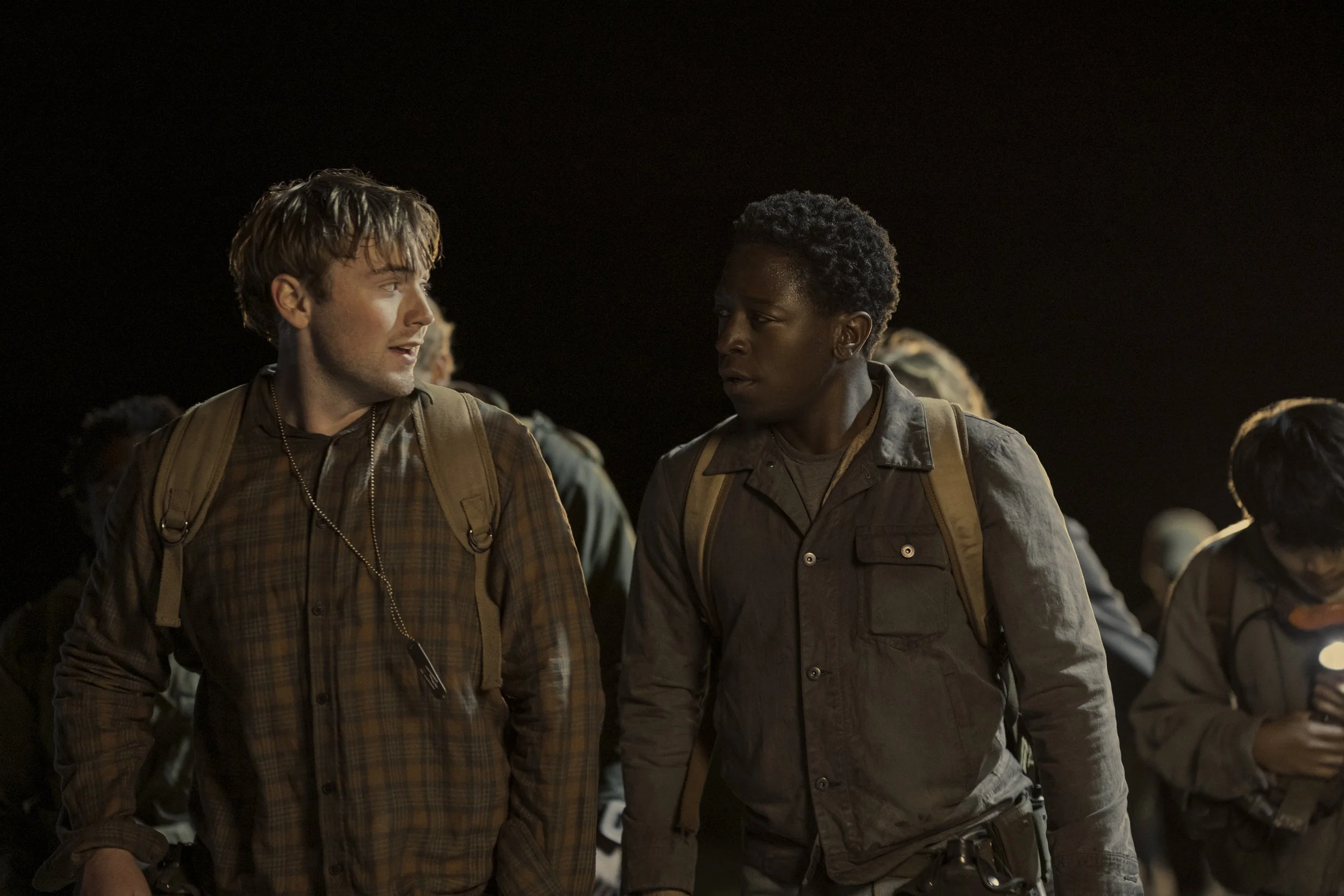
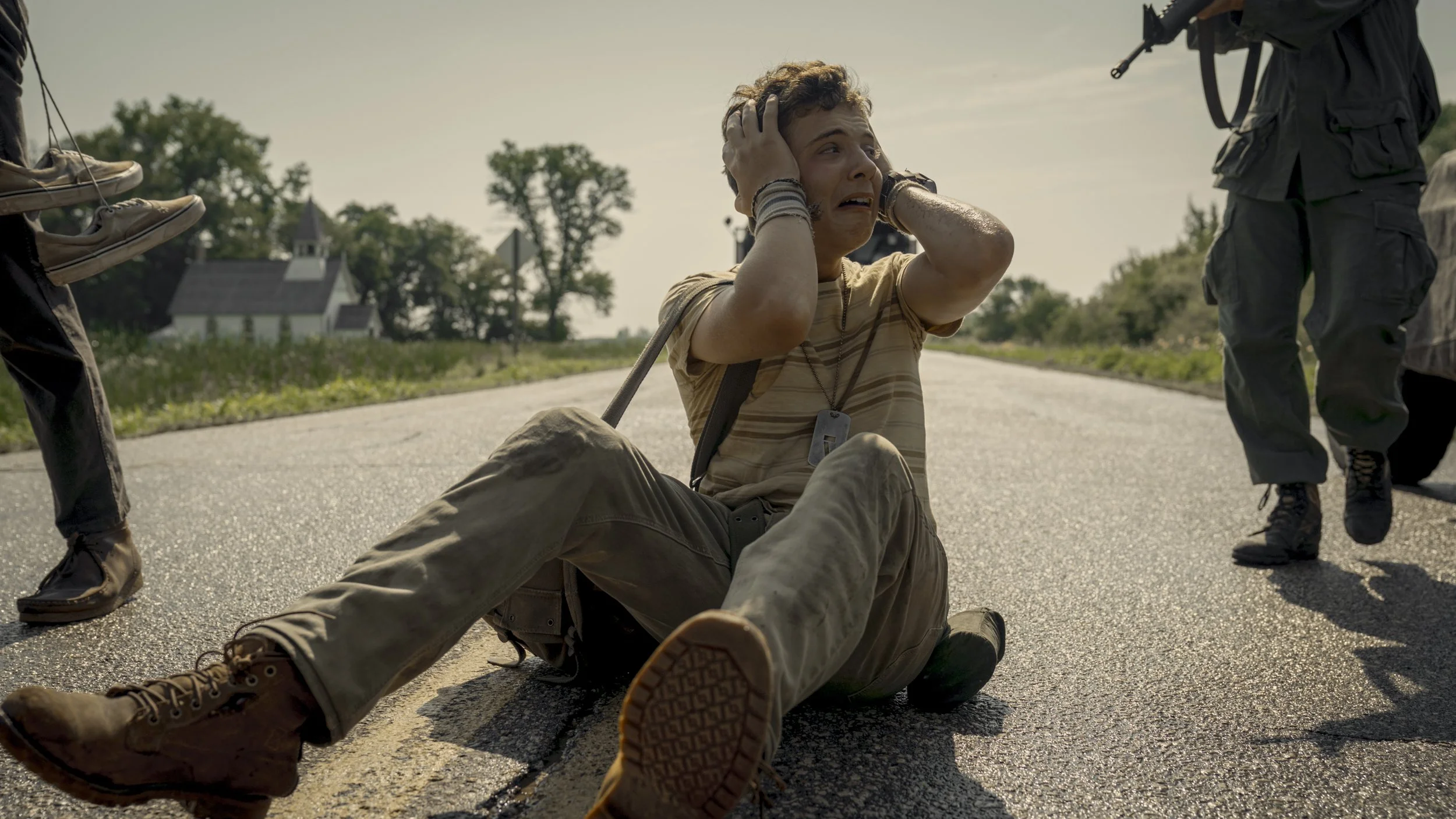
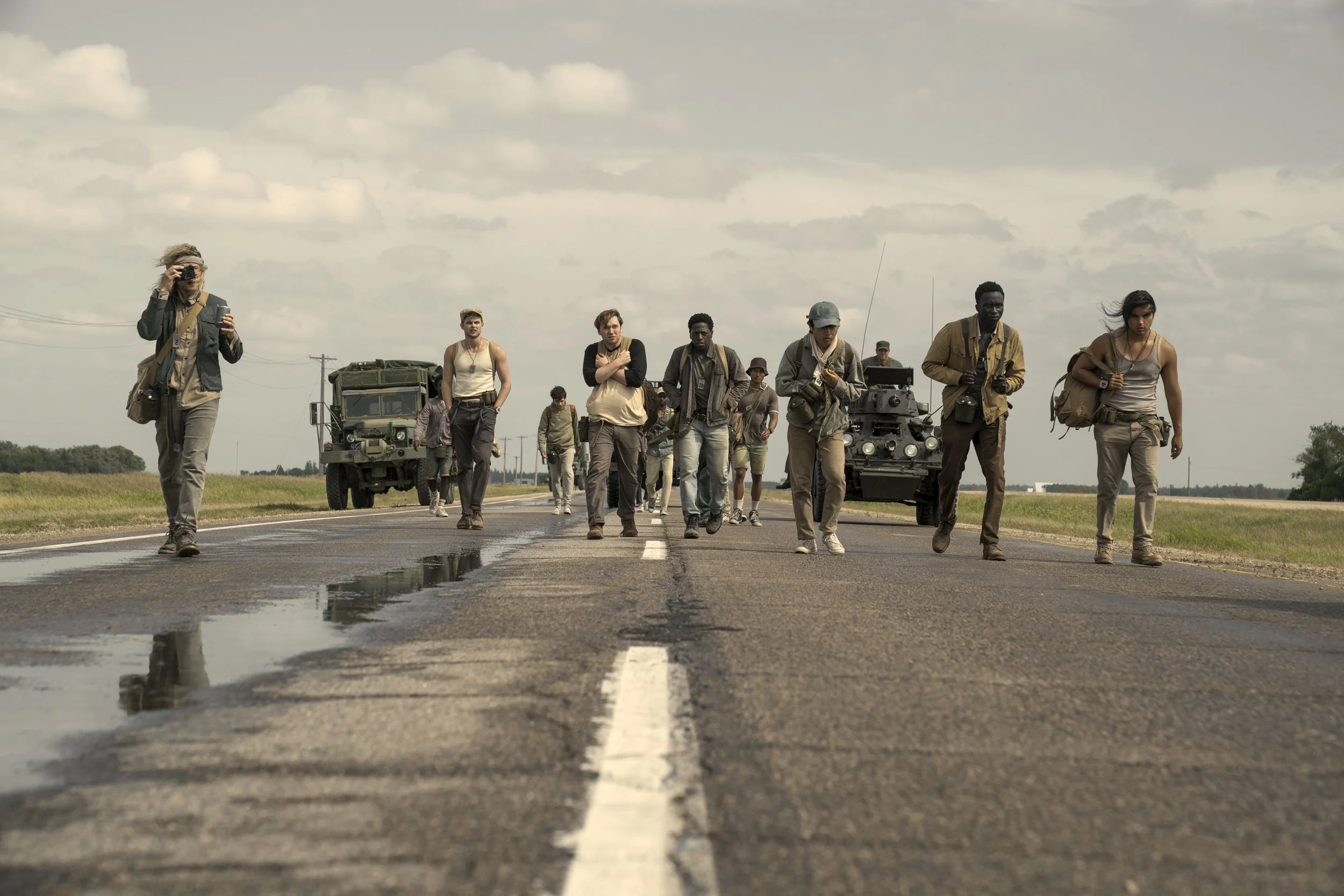
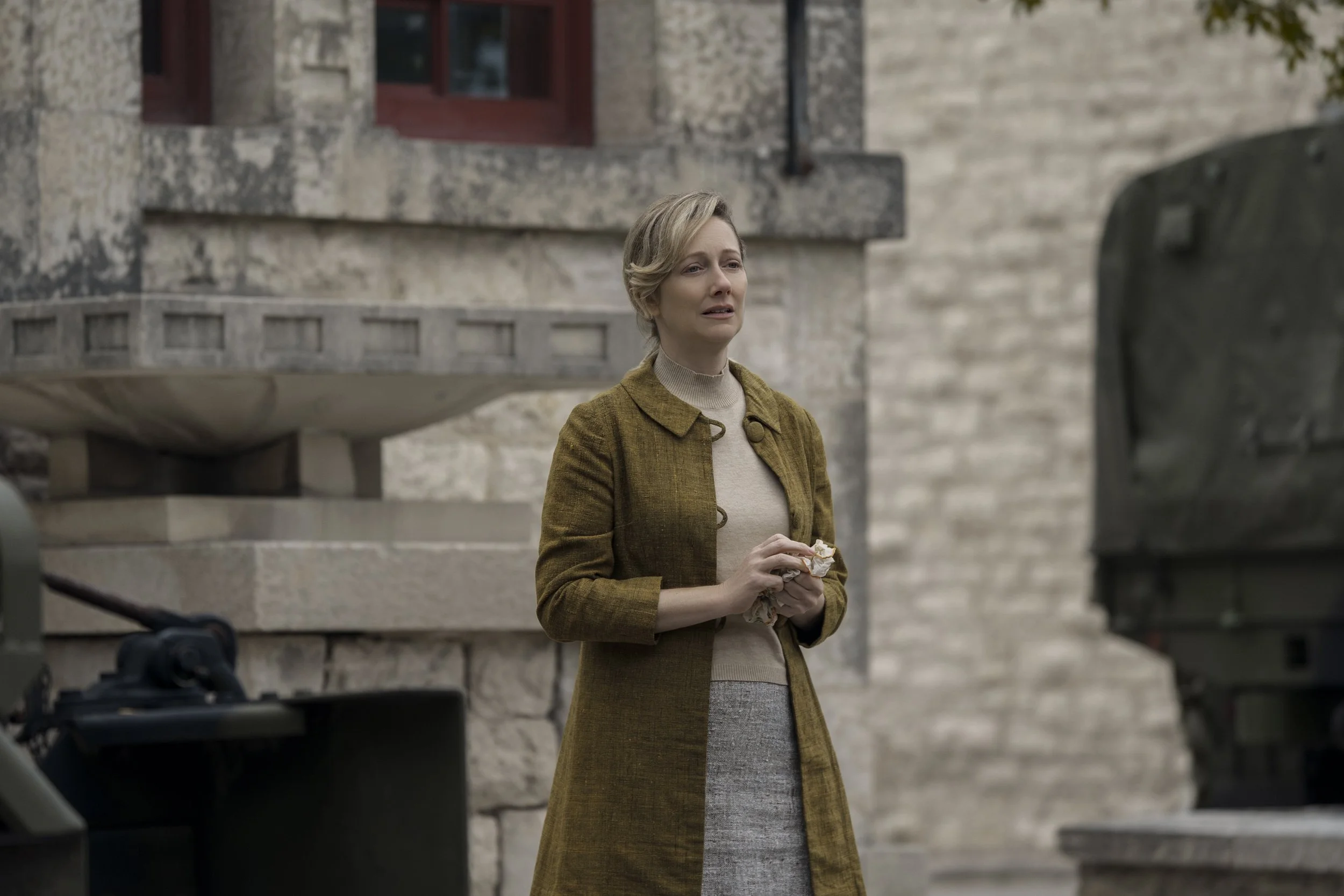
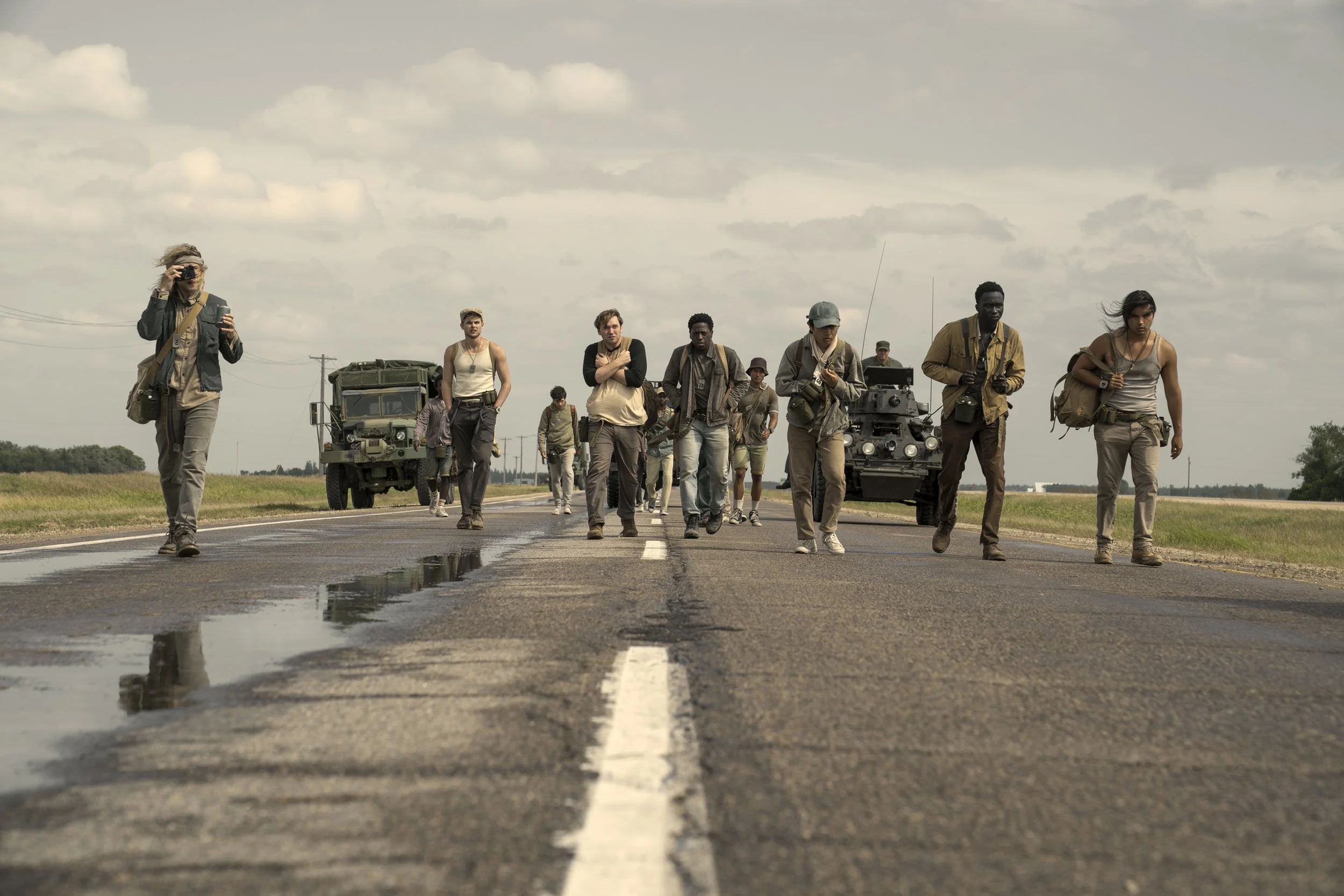
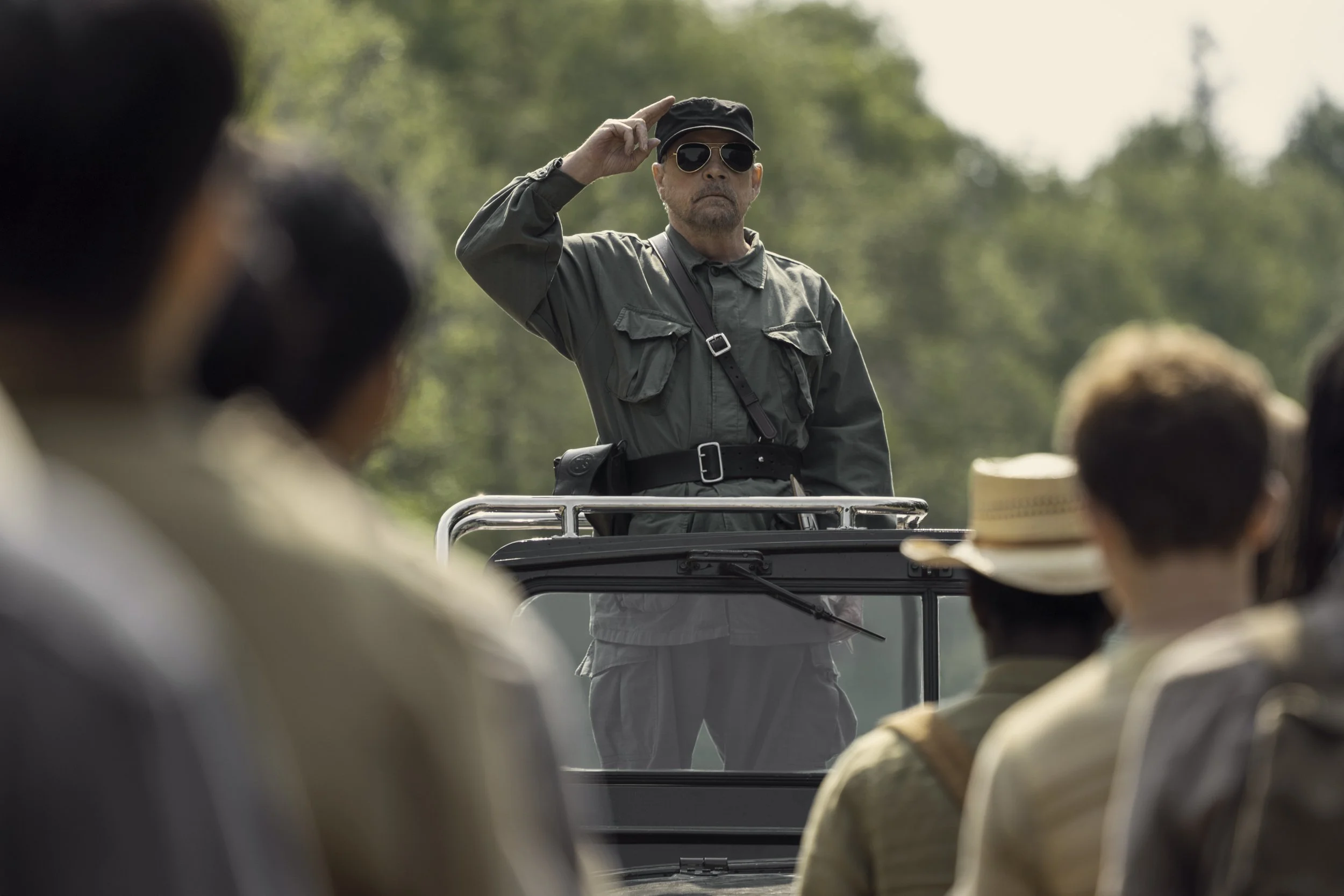
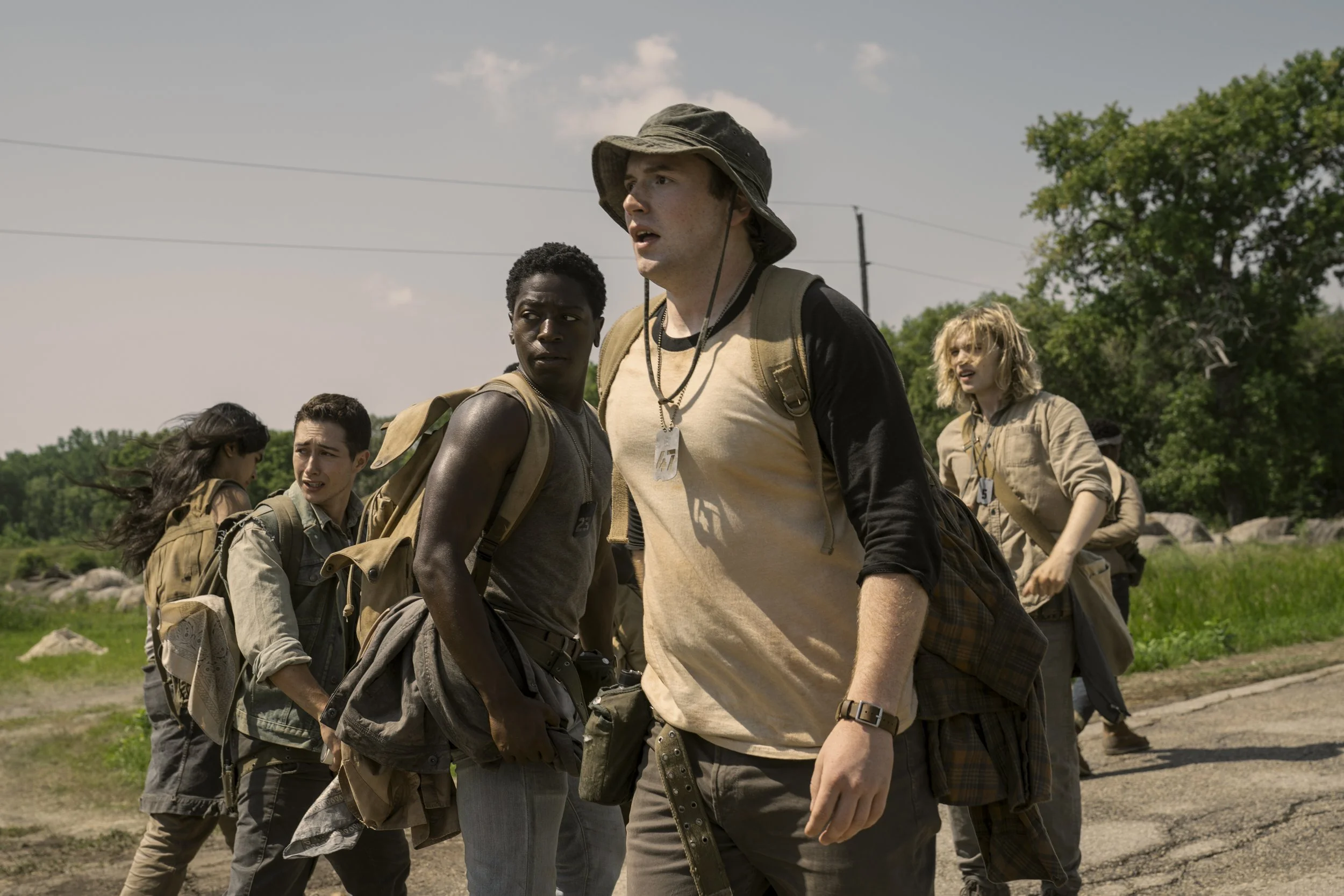
That said, the film isn’t without its flaws. Once you start applying logic, the sheer amount of walking these boys do becomes almost physically impossible, even with adrenaline and the fear of death driving them forward. Some of the friendships, especially between Ray and Peter, also feel rushed—bonding so deeply after just meeting can be hard to buy, even in traumatic circumstances.
There are countless moments where characters put themselves in extreme danger for others, and certain decisions, including the ending, may leave some viewers scratching their heads. While fans of the book might find more sense in these choices, for newcomers, these are the film’s weaker points—but they don’t completely overshadow the tense, gripping journey it delivers.
The Long Walk is a tense, haunting journey that tests the limits of endurance, friendship, and human will. While some moments ask you to suspend disbelief, the film’s emotional core, relentless suspense, and striking visuals make it impossible to look away. It’s a story that lingers long after the credits roll, reminding us how far people will go when pushed to the edge. If you’re ready for a gripping, thought-provoking thriller, this is one walk you don’t want to miss.
Watch the trailer below:

